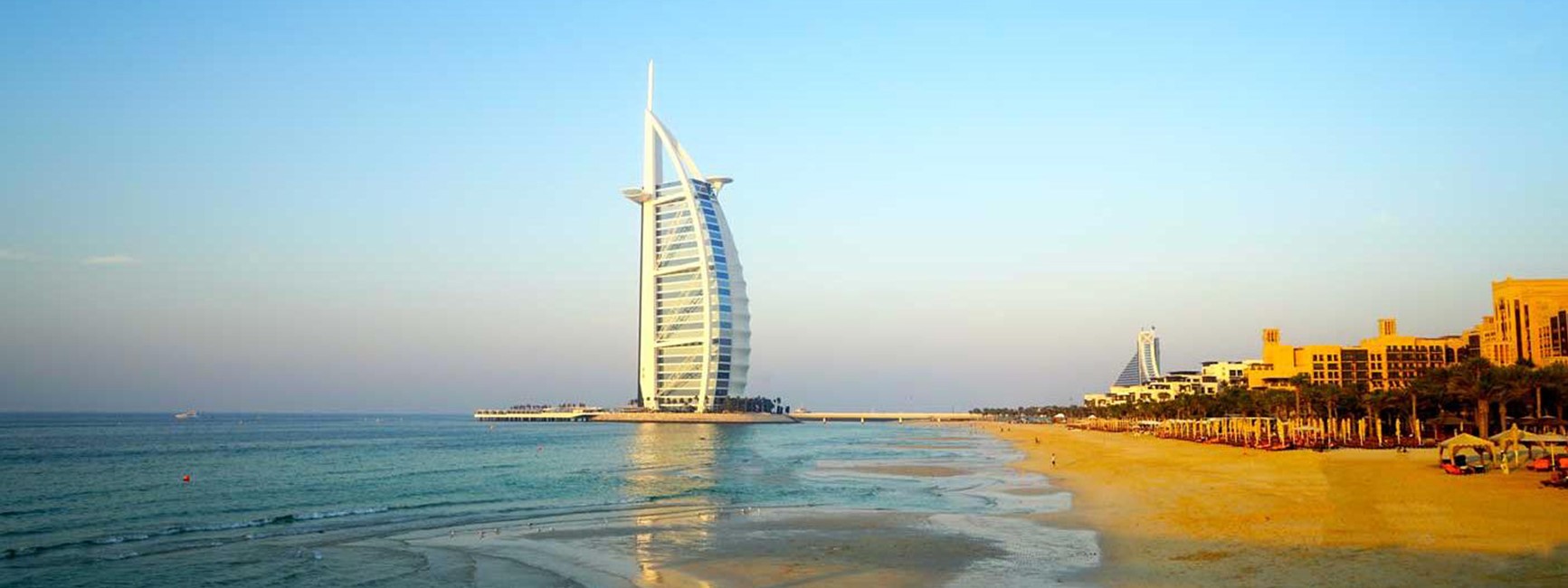Overview
- Capital:
- Abu Dhabi
- Population:
- 2.789 million
- Currency:
- Dirham (AED)
- Languages:
- Arabic
- Drives on the:
- Right
- Time zone:
- UTC +4



While there are no required vaccinations for entry into the UAE, consult your doctor about vaccinations and other preventative medicine recommended by the Center for Disease Control. There is no risk of malaria or yellow fever in the UAE.
With its dry, subtropical climate and lots of sunshine, Dubai is a year-round destination. Rainfall is infrequent—mostly during the winter months—but flash floods can occur. Temperatures range from a low of about 10C / 50F to a high of 47 C /118 F in the summer. The best time to visit Dubai is during the winter months, November-March. April and May are still pleasant, although it will be warming up. Summers are hot and humid.
Men should avoid tank tops and make sure to wear T-shirts to cover their shoulders. If possible, they should also wear long pants. Shorts are usually tolerated, but long pants are preferred. If heat is a problem, linen clothing is a good option.
When visiting a mosque, men should always wear T-shirts and long pants. Shorts are not permitted in a mosque.
Swimming shorts are most of the time acceptable for men.
Women should preferably wear loose clothing. It is essential to have arms and shoulders covered at all times. Strapless shirts and dresses are not acceptable. In addition, skirts should reach at least beneath the knee. Long skirts and dresses comply perfectly with the local dress code. Wearing pants is also a good option. It is always helpful to carry a shawl to cover hair, especially in more conservative areas.
ATMs are found all over the city.
As the shopping capital of the Middle East, Dubai is a true shopper's paradise. Low customs duties make luxury goods less expensive than in most countries. In fact, the Dubai Duty Free is renowned as one of the best duty-free operations in the world.
In the city, there are three main places: shopping malls, souks and the shopping streets or areas. Souks are very common in the Emirates and tend to be good places to buy gold, fabrics, electronics, and traditional Arabic art. Other items to shop for include clothes and fabrics, Persian carpets and rugs, Arabic coffee pots, silver and brass swords and khanjars (curved daggers), ancient rifles, shisha pipes, porcelain prayer beads, antique silver jewelry, brass trinkets, and silver and wooden miniature dhows.
220/240 volts. You will most likely need a voltage converter and plug adapter in order to use U.S. appliances, even though some outlets will correspond to American plug types and voltages. We recommend getting a universal adapter and converter kit.
Want to take your cell phone, tablet or laptop, but not sure how to get cell service or wifi? Check in google world connections before
Cameras and video recorders are permitted, and photography is generally permitted everywhere except at airports and military installations. Memory cards for digital cameras will be available in major cities
Dubai has a population of over 3.1 million people, making it the most populated city in the United Arab Emirates.
The tallest building in the world, Burj Khalifa, is found in Dubai.
Dubai is home to the longest driverless metro line, stretching over 30 miles, in the world -- and even holds a Guiness World Record for it!
Dubai Palm, the artificial island off the coast of Dubai, is the largest man made island.
The largest shopping mall in the world is found in Dubai -- mirroring the size of about 50 football fields!